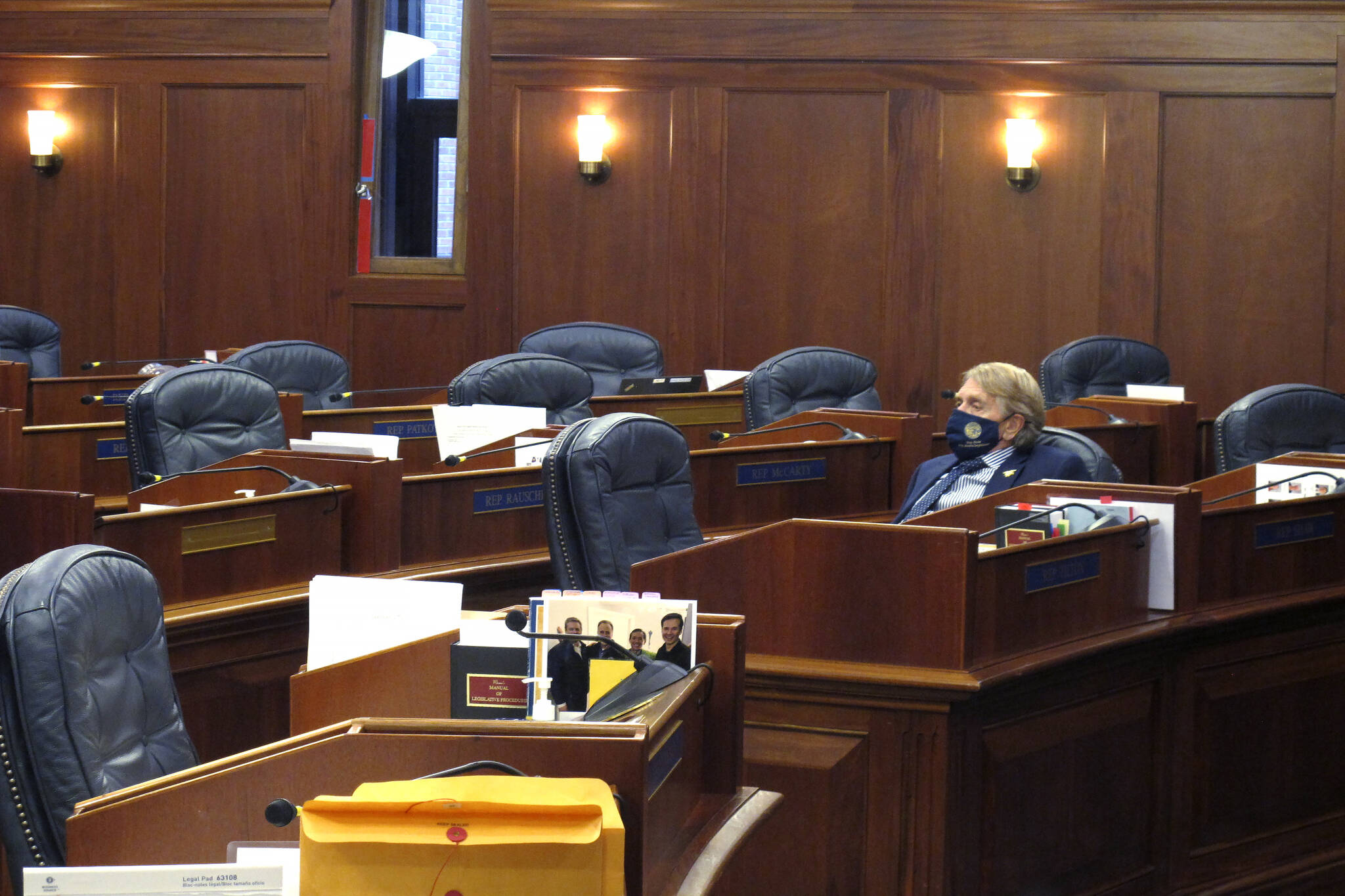By Becky Bohrer
Associated Press
The Alaska Legislature is in special session but it’s quiet at the Capitol, where many legislative offices have been dark, floor sessions in some cases have lasted seconds and little progress has been made toward resolving the state’s fiscal issues.
Since the session started Oct. 4 in Juneau, House committees have had five meetings on fiscal-related topics, all in Anchorage; the Senate has had no such hearings.
“I don’t think it’s making a lot of sense to be here doing what we’re doing right now. So if we’re not going to do anything, gavel out,” said Republican Rep. DeLena Johnson of Palmer, one of four House members present last week for a so-called technical floor session held to satisfy a meeting requirement but at which no business is taken up.
Outside the first day, there has been one regular floor session. That was in the House and after bill introductions, much of the time was spent on speeches, some memorializing people who died recently, others on topics like COVID-19 vaccines.
There has been interest in finding a long-term solution to a yearly, divisive fight over what size dividend to pay residents from the state’s oil wealth. A legislative working group recommended a constitutional guarantee of a dividend as part of a package with elements including new revenue, budget reductions and a revised spending limit.
The recommendations weren’t binding, and there are different ideas among legislators about the various components.
There was little enthusiasm for this special session, the fourth of the year, which came weeks after the prior one ended. Alaska has a citizen Legislature, meaning some lawmakers have other jobs. Costs for special sessions so far this year weren’t immediately available.
House Speaker Louise Stutes, who leads a bipartisan coalition, had asked Gov. Mike Dunleavy to cancel this special session, citing COVID-19 and cost concerns and calling it unnecessary for lawmakers to continue work on fiscal measures.
Dunleavy, a Republican, said it wasn’t a mistake to forge ahead, even as some legislators said members need a break or have other obligations as regular and special sessions have consumed much of the year and yielded no agreed-upon path forward on the dividend and a fiscal plan.
Dunleavy, who like most legislators faces reelection next year, said lawmakers have plenty of options before them and need to hear and bring bills up for votes.
“They can say they’re tired, they’re old, they’re sleepy, they’re hungry. They can say all that stuff. But in the end, they either did it or they didn’t,” he said.
Dunleavy said he will not call another special session this year.
[Last week of special session looks light]
Dunleavy has advocated splitting annual draws from the oil-wealth permanent fund 50-50 between dividends and government, which the legislative group recommended working toward. While Dunleavy said the administration has responded to legislators’ questions, some lawmakers said they would like to see Dunleavy more engaged and clearer on what elements he would support as part of a plan.
Senate President Peter Micciche, a Soldotna Republican, said Alaskans “don’t care about a show on the floor. They care about results.” This special session “had no potential to deliver the results,” he said.
Micciche said the Senate is divided and his job is to try to move senators to “more common ground” to be positioned to act on bills during the next regular session, starting in January.
Micciche said he preferred to wait for lawmakers to have the support to call themselves into a special session because “that would mean we’ve had more forward progress on the potential to agree on a fiscal plan. We’re not even close.”
He said this special session was “irresponsible” and “would have been much more wasteful had we not just sent people home.”
Stutes, a Kodiak Republican, said she wanted to keep “the ball moving forward” whether there was a special session or not and said she thinks that’s happening, despite frustrations voiced by legislators who see stagnation.
Stutes and Micciche each indicated they did not plan to adjourn the session early. The clock on this special session expires Nov. 2.
“If we don’t have anything to move and the Senate’s not moving, it’s absolutely foolish to bring our troops down here to do nothing,” Stutes said.
Anchorage Rep. Laddie Shaw, a leader in the Republican minority, showed up early for a technical session last week, at times checking his watch while waiting for Johnson, Stutes and another legislator to join him. The floor session lasted less than a minute.
Shaw said he has traveled back and forth between Anchorage and Juneau. He said he is frustrated with the pace and lack of movement on bills.
Sen. Bill Wielechowski, an Anchorage Democrat and a labor attorney, said he came to Juneau for the start of the special session before returning home. He said he has been waiting to get a call to return or for hearings. Wielechowski said the Legislature just seems stuck.
Rep. Ivy Spohnholz, an Anchorage Democrat who chairs the House Ways and Means Committee, said she expects conversations to continue once this special session ends but that her committee may set things aside until the regular session begins in January.
Legislators need a break, and the pandemic has brought added stress, she said. They need to “go back to real life for a little while,” get reconnected to constituents and “get rested up to go back and do the hard work of governing in the 2022 regular legislative session,” she said.

